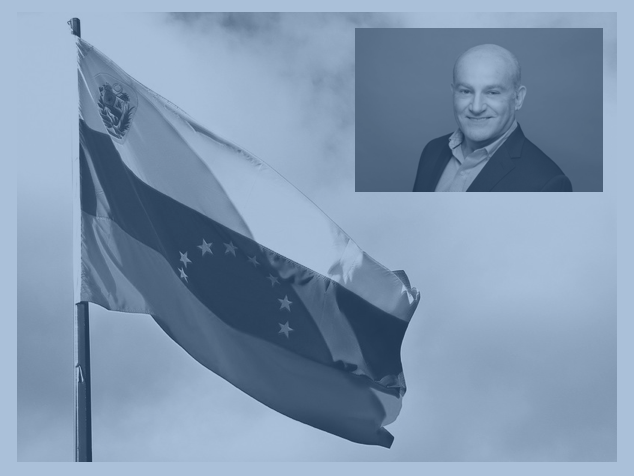Can Spain Solve the Cuba Problem?
By all accounts, Spain wants to bring change to the European Union’s Cuba policy. In so doing, it is tackling a foreign policy challenge that often sheds more heat than light.
On September 30, 2021, the Inter-American Dialogue co-hosted the online event “A Conversation with Feliciano Reyna on Negotiations to Resolve the Crisis in Venezuela” in collaboration with the Institute for Policy Studies, the Washington Office on Latin America, and the Latin America Working Group.
The event was a conversation with Feliciano Reyna, founder and executive president for Acción Solidaria, together with experts from each partner organization to discuss the escalating humanitarian emergency in Venezuela within the context of the ongoing negotiations between the Maduro regime and the Venezuelan opposition party. Experts included John Cavanagh, senior advisor at the IPS, initiated the conversation, Geoff Ramsey, director of the Venezuela Program at WOLA, Phyllis Bennis, program director at the IPS, Santiago Canton, director of the Peter D. Bell Rule of Law Program at the Dialogue, and Edgardo Lander, fellow at the Transnational Institute and professor emeritus of the Central University of Venezuela.
Both Reyna and Lander presented a robust overview of the humanitarian emergency in Venezuela to provide context for framing the conversation. Reyna highlighted the troubling escalation of poverty levels in the country, which were reaching concerning levels in 2015 but have, as a result of the pandemic, escalated to unprecedented levels. According to Reyna, the poverty rate in Venezuela is currently at a 65 percent, with 5 million Venezuelans living as food insecure. Lander expanded on the consequences of the emergency, highlighting how current levels of childhood malnourishment and migration will have the greatest impact on the nation’s youth in the years to come.
A recurrent theme throughout the conversation was the important role grassroots organizations can have on ameliorating the crisis. Answering questions from both Ramsey and Canton, Reyna posited that redirecting US funds from UN-based organizations towards smaller organizations on the ground will have a much more visible impact on the alleviation of the emergency, as it is these smaller organizations who best understand the grievances of the Venezuelan people. Similarly, Reyna argued that incorporating the voices of smaller organizations and civil society groups within the negotiations will also be beneficial, as it brings the needs of the Venezuelan people closer to the negotiation table.
All participants shared an overall discontent with the Venezuelan opposition’s managing of both the negotiations and the crisis. Lander posited that the opposition’s “extreme irresponsibility” will impede the Venezuelan people from participating in the upcoming elections despite a renewed desire by Venezuelans to participate civically. Nonetheless, both Reyna and Ramsey argued that the current negotiations are a step forward —albeit a small one. Ramsey posited that this round’s abandonment of the previous “all or nothing” approach might warrant different results, yet Canton stated that the previous failures at the negotiation table discourage a sense of optimism in regards to the current talks.
Participants also discussed the current sanctions regime in Venezuela and their repercussions on the Venezuelan people. Both Bennis and Lander highlighted what they considered to be the hypocrisy of the US sanctions regime; Lander stipulating that the United States has no moral or legal authority to impose such sanctions on Venezuela. Reyna emphasized the role these blanket sanctions have had on the exacerbation of the crisis while still clarifying that the crisis was a result of the extensive political irresponsibility of the Maduro regime. Understanding the political price of removing all sanctions, Reyna also argued for the individualization of the sanctions regime and the removal of those sanctions that have clear detrimental repercussions for the Venezuelan people. Lander elaborated on this point, arguing that sanctions have not only exacerbated the crisis, but have also provided the Maduro regime with a scape-goat on which they can blame the crisis on.
By all accounts, Spain wants to bring change to the European Union’s Cuba policy. In so doing, it is tackling a foreign policy challenge that often sheds more heat than light.
When Haiti was struck by a devastating earthquake, the administration of U.S. President Barack Obama quickly absorbed the depth of the tragedy and necessity of a robust U.S. response. Unless the U.S. adopts a proactive role, Haiti’s fragmented political landscape threatens to deteriorate into a political vacuum that will compound the current crisis.
Politics is swirling everywhere. Such are the ways of democracies, especially when oppositions come alive and defeat or threaten incumbents.
 Main Image: Cristóbal Alvarado Minic / CC BY 2.0
Main Image: Cristóbal Alvarado Minic / CC BY 2.0